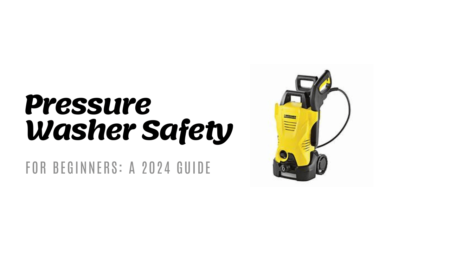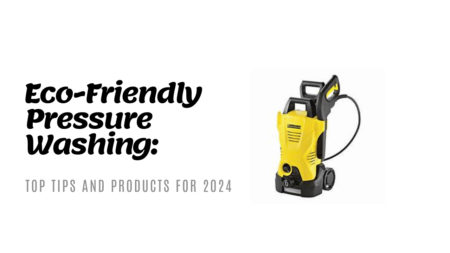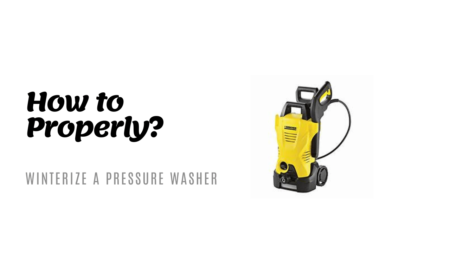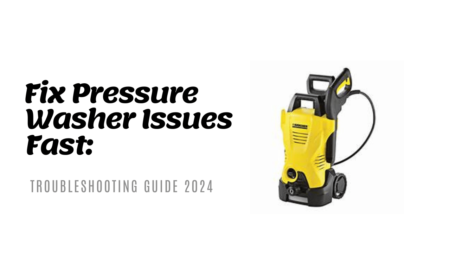Pressure washers are a great tool for keeping your home and outdoor space clean. But can they do more harm than good when it comes to your plumbing system? While pressure washers can be used to clean pipes, there is a certain amount of pressure that needs to be applied to make sure the job is done safely and correctly.
Yes, Pressure washers can potentially damage plumbing systems. Excessive pressure can result in cracks, leaks, or even bursting. PVC pipes, in particular, are more susceptible to cracking under high pressure. This can lead to water leaks and potentially flooding in your home.
How High Water Pressure Could Harm Plumbing and Pipes?
Using a pressure washer on pipes can potentially lead to several damages if not done correctly. One of the main concerns is how much pressure the pipes can handle. As mentioned earlier, different types of plumbing systems have varying PSI tolerance levels. PVC pipes, for example, can typically handle pressure up to 150 PSI, while cast iron pipes can withstand higher pressure levels.
Exceeding the PSI tolerance of the pipes can cause serious damage. Excessive pressure can result in cracks, leaks, or even bursting. PVC pipes, in particular, are more susceptible to cracking under high pressure. This can lead to water leaks and potentially flooding in your home.
Another potential damage that can occur is the loosening or dislodging of joints and connections. Drain pipes, in particular, are prone to this issue due to their thinner materials and vulnerable joints. The force of the high-pressure water can cause these joints to become loose or disconnected, leading to water leaks or sewer backups.
In addition, using a pressure washer with the wrong type of nozzle or improper technique can also cause damage to the pipes. A narrow, high-pressure nozzle can concentrate the water force on a small area, increasing the risk of pipe damage.
To prevent these damages, it’s crucial to use lower PSI settings when cleaning pipes and avoid using high-pressure nozzles. It’s also important to be cautious when applying pressure near joints and connections. Regular inspection and maintenance of your plumbing system can help identify any potential issues before they escalate.
By understanding the potential damages and taking appropriate precautions, you can safely use a pressure washer on your plumbing system without causing any harm.
How to Safely Use a Pressure Washer on Your Plumbing System
When it comes to using a pressure washer on your plumbing system, safety is paramount. Here are some tips on how to safely use a pressure washer on your pipes to prevent any potential damage.
1. Know your PSI
As mentioned earlier, different types of plumbing systems have varying PSI tolerance levels. PVC pipes can handle pressure up to 150 PSI, while cast iron pipes can withstand higher pressure levels. Understanding the PSI rating of your pressure washer and adjusting it accordingly is crucial. Start with lower PSI settings and gradually increase if necessary, keeping in mind the specific PSI tolerance of your pipes.
2. Use the Right Nozzle
Choosing the correct nozzle for cleaning pipes is essential. Avoid using a narrow, high-pressure nozzle, as it can concentrate the water force on a small area and increase the risk of pipe damage. Instead, opt for a wider spray pattern to distribute the pressure more evenly.
3. Be Cautious Around Joints and Connections:
Pay special attention to joints and connections, as they can be more vulnerable to damage. Avoid applying excessive pressure near these areas to prevent loosening or dislodging.
4. Maintain a Safe Distance:
When using a pressure washer on your plumbing system, maintain a safe distance between the nozzle and the pipes. This helps to prevent accidental damage caused by excessive pressure or direct impact.
What Water Pressure Do I Need to Clean the Pipes?
The pressure you need to clean pipes can vary depending on the type of pipes, the material they’re made of, and the nature of the blockage or buildup you’re trying to remove. In general, the pressure for pipe cleaning can range from around 1,000 to 4,000 pounds per square inch (psi).
For household plumbing and drain pipes, a pressure of around 1,500 to 2,000 psi is often sufficient for removing common blockages like grease, hair, and mineral buildup. Pressure washers with adjustable settings can be used for this purpose.
However, it’s crucial to exercise caution when using high-pressure equipment, as excessive pressure can damage pipes, especially if they are older or made of delicate materials. If you’re dealing with more stubborn blockages or industrial pipes, higher pressures might be necessary, but it’s recommended to consult with professionals who specialize in pipe cleaning to determine the appropriate pressure levels for your specific situation.
Always remember to prioritize safety and use appropriate equipment when cleaning pipes, and if you’re unsure, it’s best to seek advice from experts or professionals in plumbing and pipe maintenance
Signs That You Have Water Pipe Damage after pressure washing
After pressure washing, there are several signs you should watch out for to determine if you have water pipe damage. Here are some common indicators:
Leakage
If you notice water leaking from areas of your pipes that were not leaking before pressure washing, it could indicate that the pressure caused damage, leading to cracks or weakened connections.
Decreased Water Pressure
If the water pressure in your plumbing system has significantly decreased after pressure washing, it could be a sign that the pipes have been damaged or obstructed by debris dislodged during the cleaning process.
Unusual Noises
Gurgling, whistling, or banging noises coming from your pipes after pressure washing could signal that there is air trapped in the pipes due to damage or misalignment.
Persistent Leaks
If leaks that were fixed prior to pressure washing have reappeared or worsened after cleaning, this could be a sign that the pressure exacerbated existing issues.
Strange Odors
The presence of foul odors from your drains or pipes after pressure washing could be due to dislodged debris or damage causing stagnant water to accumulate.
Increased Water Bills
A sudden increase in your water bills without a corresponding increase in water usage could suggest that water is leaking from damaged pipes.
If you observe any of these signs after pressure washing, it’s essential to address the issue promptly to prevent further damage and water wastage. Consulting a professional plumber to assess the situation and make necessary repairs is recommended to ensure the integrity of your water pipes.
Conclusion
As we wrap up our exploration into the often-unseen hazards of pressure washers on plumbing, it’s essential to approach your outdoor cleaning projects with caution and care. While these mighty machines can certainly be a game-changer in restoring the beauty of your home’s exteriors, it’s equally vital to be aware of their potential impact on your plumbing system. Before unleashing the power of high-pressure water jets, consider protective measures such as using wider spray nozzles, maintaining a safe distance from pipes, and opting for professional assistance when dealing with delicate plumbing situations. Remember, a little mindfulness can go a long way in ensuring both the cleanliness and health of your home.




![Pressure Washing Regulations: What You Need to Know [Updated 2024]](https://pressurwasher.com/wp-content/uploads/2024/05/Minimalist-Tutorial-Event-YouTube-Thumbnail-2024-05-31T224409.854-450x253.png)
![Ultimate Guide to Pressure Washer Maintenance [2024 Edition]](https://pressurwasher.com/wp-content/uploads/2024/05/Minimalist-Tutorial-Event-YouTube-Thumbnail-2024-05-30T230638.695-450x253.png)